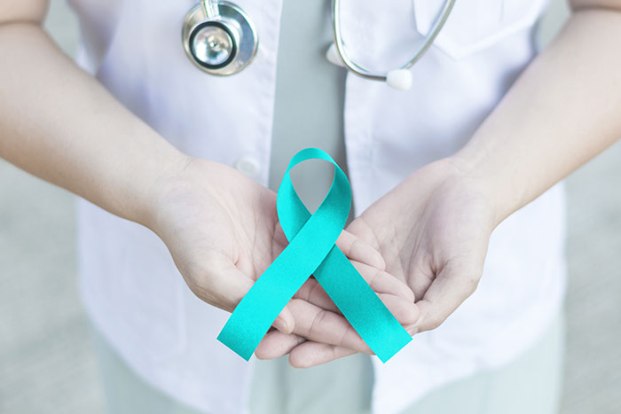Ovarian Cancer – Risk, Symptoms and Staging
Apr 19, 2022
Ovarian cancer is the third common female cancer in India with 30000 new cases every year. Ovarian cancer happens when normal cells in the ovary change into abnormal cells and grow out of control. The ovaries are the paired organs on both sides of uterus, which contain and release woman’s eggs and hormones (estrogen& progesterone).

Risk factors of Ovarian Cancer
There are many factors that can increase your chances of developing a cancer. Here are some of them-
- Age-Ovarian cancer occurs most often in women ages 50 to 65.
- Familial-sometimes runs in families in 15-20 per cent of cases due to inherited faulty gene BRCA1 or BRCA2. These women have a higher risk of developing breast and/or ovarian cancer than others.
- Obesity
- Hormone Pills (estrogen alone HRT)
- Smoking
- Polycystic ovary disease (PCOD) affects millions of women worldwide; however, at this stage there is no strong evidence to suggest that having PCOD increases the risk of developing ovarian cancer.
Symptoms of Ovarian Cancer
Ovarian cancer is called as silent killer because women might not notice their symptoms and by the time symptoms come it is already spread widely. Also, there are no robust screening tests to diagnose this cancer at an early stage. Some of the symptoms of ovarian cancer can include:
- Your stomach (abdomen) getting bigger
- Feeling bloated or having stomach pain
- Feeling full or having trouble eating or early satiety
- Needing to urinate often or constipation
Staging
The way in which doctors find out the cancer spread is the staging process. It is done by the following tests
- Ultrasound or CT scan – These tests create images of the inside of the body and can show abnormal growths.
- Blood tests – There are several blood tests that can help diagnose ovarian cancer. One is the “CA 125” blood test.
Unlike other diseases cancer is not diagnosed early as there are not many symptoms especially for deep organs like ovaries. By the time it is diagnosed it is very late and advanced. So be vigilant, be close to your health care giver and regular check-ups before it is too late.








